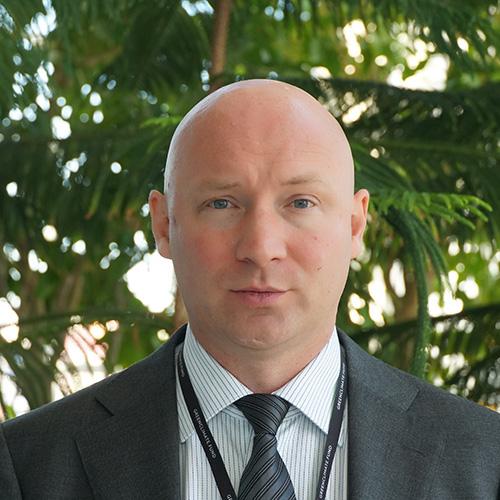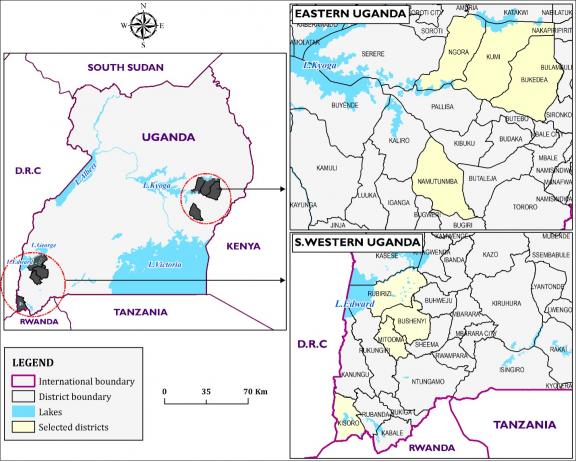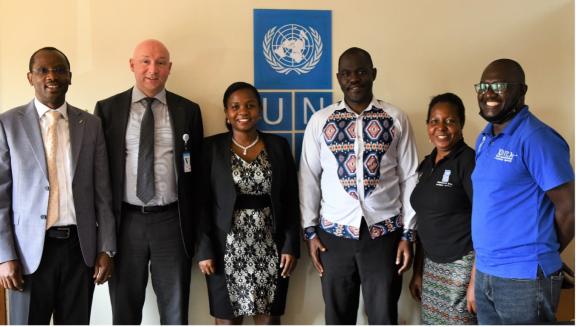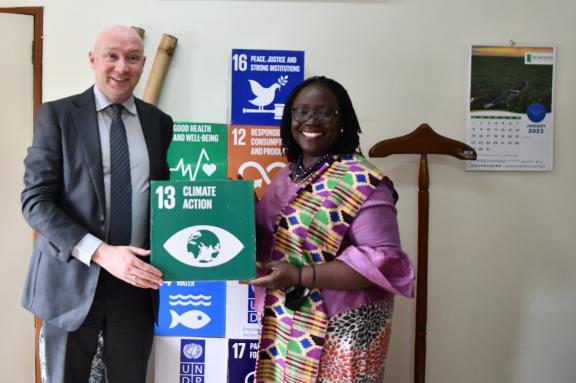Stakeholder Engagement in Impact Evaluation
Strong engagement with stakeholders is central to the IEU’s Learning-Oriented Real-Time Impact Assessment (LORTA) programme. In practice, this means engagement with the AE project team, implementing entities, executing entities, and on occasion civil society, and wider local stakeholders from inception through to completion of the evaluation. For example, project teams have full oversight of the choice of design and implementation of methods, ownership of data collection, and shared responsibility and accountability with the GCF-IEU for the interpretation of results and reporting.
Within LORTA, our technical assistance provides awareness, development and shared ownership for real-time monitoring and learning about the impact of GCF-funded activities. With strong engagement with stakeholders, our support to project teams involves tailoring impact monitoring to the needs of the project, beneficiaries, and country. Meeting the needs of accredited entities is made possible through frequent and close communication, which helps to keep our vision aligned with both on-site staff and stakeholders alike.
A recent mission trip by the team to support one of the LORTA projects based in Uganda illustrates how these principles are applied.
LORTA is involved in a UNDP project (FP034 ‘Building Resilient Communities, Wetland Ecosystems and Associated Catchments in Uganda’) to restore the Ugandan Wetlands through a GCF grant worth $24 million (alongside UNDP and Government of Uganda co-financing).
The project aims to assist the UNDP and Government of Uganda as partners and co-financers take climate change effects into account in managing wetlands through:
-
Restoring critical wetlands (Component 1)
-
Supporting resilient agricultural practices and alternative livelihoods for communities living in these areas to reduce the pressures on the wetlands (Component 2), and
-
Strengthening decentralized climate information and early warning systems to empower these communities to make climate-resilient decisions (Component 3).
Figure 1: Districts selected for baseline assessment in Uganda
The project employs community based natural resource management, which dovetails well with Uganda's decentralized local governance structures. Within each of the districts in the eastern region and in the southwestern region where the projects are being delivered, the project works through local technical working groups. This creates ownership at the district and local level. Figure 1 illustrates the districts selected for baseline assessment in Uganda.
The LORTA team is estimating the impacts of the first two components of this project with the aim of assessing the restoration and management of wetland hydrology and improved agricultural practices and alternative livelihood options in the wetland catchment areas.
For component 1, the evaluation is utilising a range of ecological indicators to assess the status of wetland health though the use of earth observation data, biodiversity assessment methods with a focus on flora and fauna, as well as water and soil quality. For component 2, the evaluation is utilising a household survey, focus group discussions and key informant interviews to assess improved agricultural practices and alternative livelihood options in the wetland catchments. The impact evaluation will help project teams understand which activities are working, which are most efficient, and which approaches to scale up.
Figure 2: UNDP Staff in their Uganda Office
The LORTA programme recently supported a four-day workshop facilitated by the UNDP and Ministry of Water and Environment and attended by over 30 government officials and stakeholders from wider ministries and agencies. Working in person with government agencies ensured meaningful consultation with many in-country stakeholders, which ultimately led to a new and improved approach for the impact evaluation, which was more aligned with national expertise, understanding and priorities.
The country visit to Uganda highlighted how engagement across different local and national actors is pivotal to successful LORTA collaborations on estimating the impacts of GCF projects in the ground.
Figure 3: Resident Representative of UNDP Uganda - Elsie Attafuah
Disclaimer: The views expressed in this blog are the authors' own and do not necessarily reflect the views of the Independent Evaluation Unit of the Green Climate Fund.




